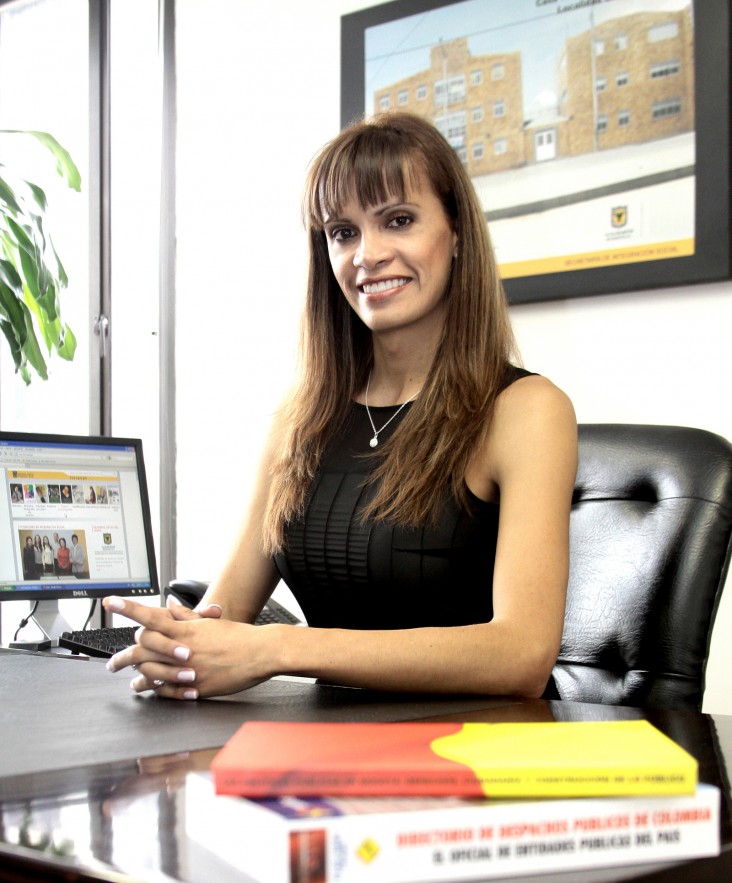
July 2014—Colombia has seen many gains in lesbian, gay, bisexual and transgender (LGBT) human rights in recent years. Although these gains have been developing quickly, there is still a long way to go, especially for the transgender community.
Like many transgender individuals, Tatiana Piñeros Laverde had to work harder than most to overcome discrimination and mistreatment throughout her life. For example, when Piñeros was in the final stages to be hired for a secretarial job, she was denied the position when her employers found out she was transgender.
Although Piñeros had her family’s support throughout her life and schooling, she knows that is not the experience for most transgender people. Despite discrimination, Piñeros continued to pursue a career and is now the director of corporate development and human resources in the Office of Social Welfare in Bogotá. In this role, she oversees social welfare spending on everything from homes for the elderly to cafeterias for preschoolers. Piñeros is one of the few openly LGBT officials in Colombia.
USAID’s LGBT Global Development Partnership, a public-private initiative supporting LGBT human rights and equality in developing countries, is helping individuals like Piñeros develop the skills necessary to succeed in the midst of discrimination.
The roles of LGBT officials in office are crucial for the expansion of human rights and inclusive development globally. Piñeros understands firsthand how crucial these relationships are in a government.
“The election of LGBT officials is important at all times since it allows people to openly work towards the recognition of rights and equality … and contributes to the demolishing of negative public perception due to the lack of interaction of LGBT people,” said Piñeros.
Piñeros continues to serve as an example of LGBT leadership in public office. In August 2013, she attended a USAID-supported training in Cartagena to build her leadership skills and develop political and campaign expertise. During this training, she and 29 other attendees learned different aspects of political leadership and campaigns from messaging to skills needed to run as an openly LGBT candidate. These trainings help Piñeros in her current role and may assist her in the future if she runs for office.
An 90 additional people in Colombia, the Balkans, and Peru have since received the training. The training, implemented by the Victory Institute, is a critical part of the four-year LGBT Global Development Partnership, which began in April 2013.
Piñeros isn’t sure what her political future holds but says, “The training has allowed me to focus my work towards acquiring the skills that in the right moment, could help me to be a successful candidate for public office.”
In the meantime, she is committed to working hard in her position to better the welfare of the Colombian people while embracing diversity and equality. “With trainings such as those conducted by the Victory Institute, we can increase awareness of people in public institutions and recognize and respect diversity, rights, and equality.”







Comment
Make a general inquiry or suggest an improvement.